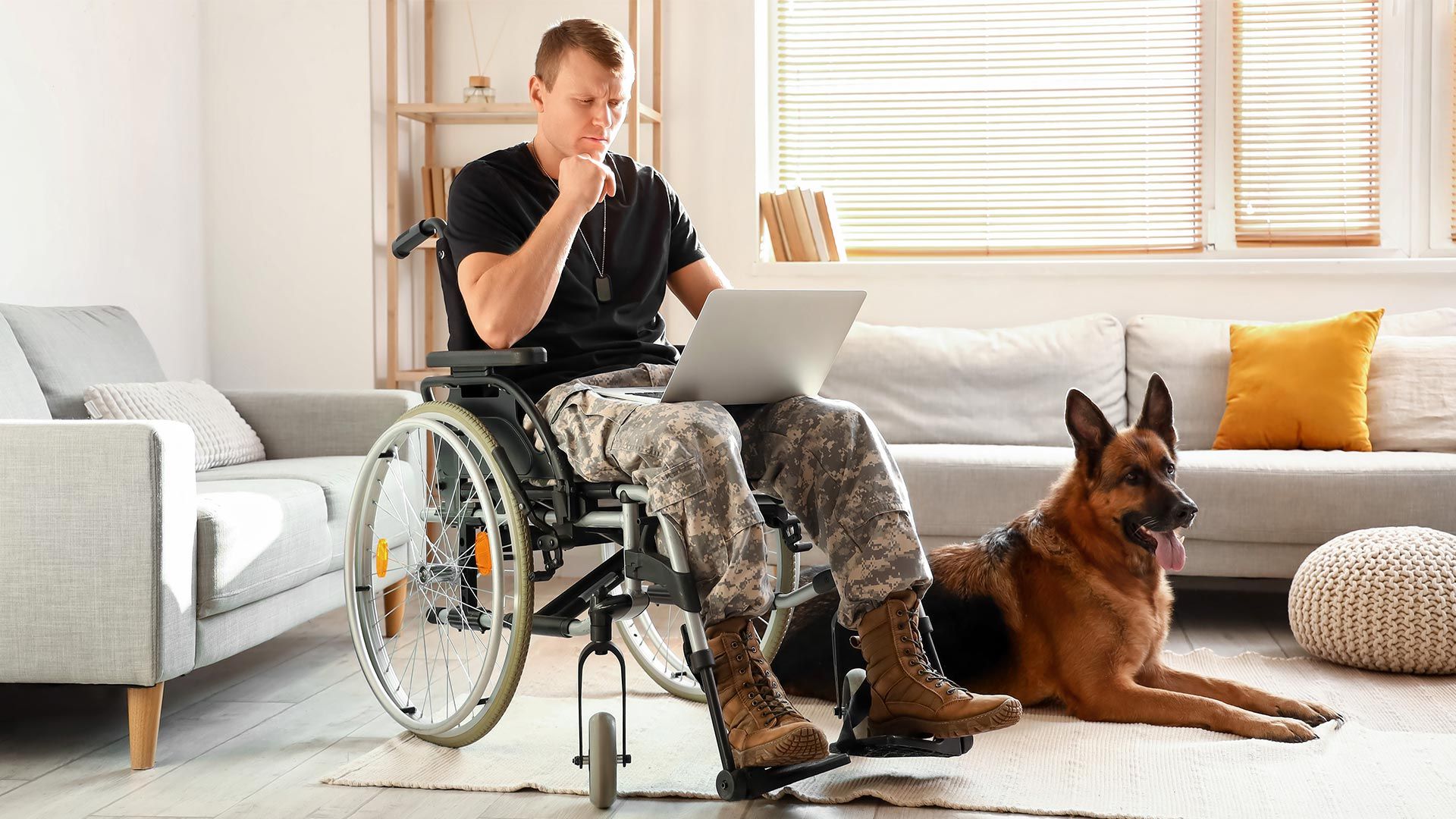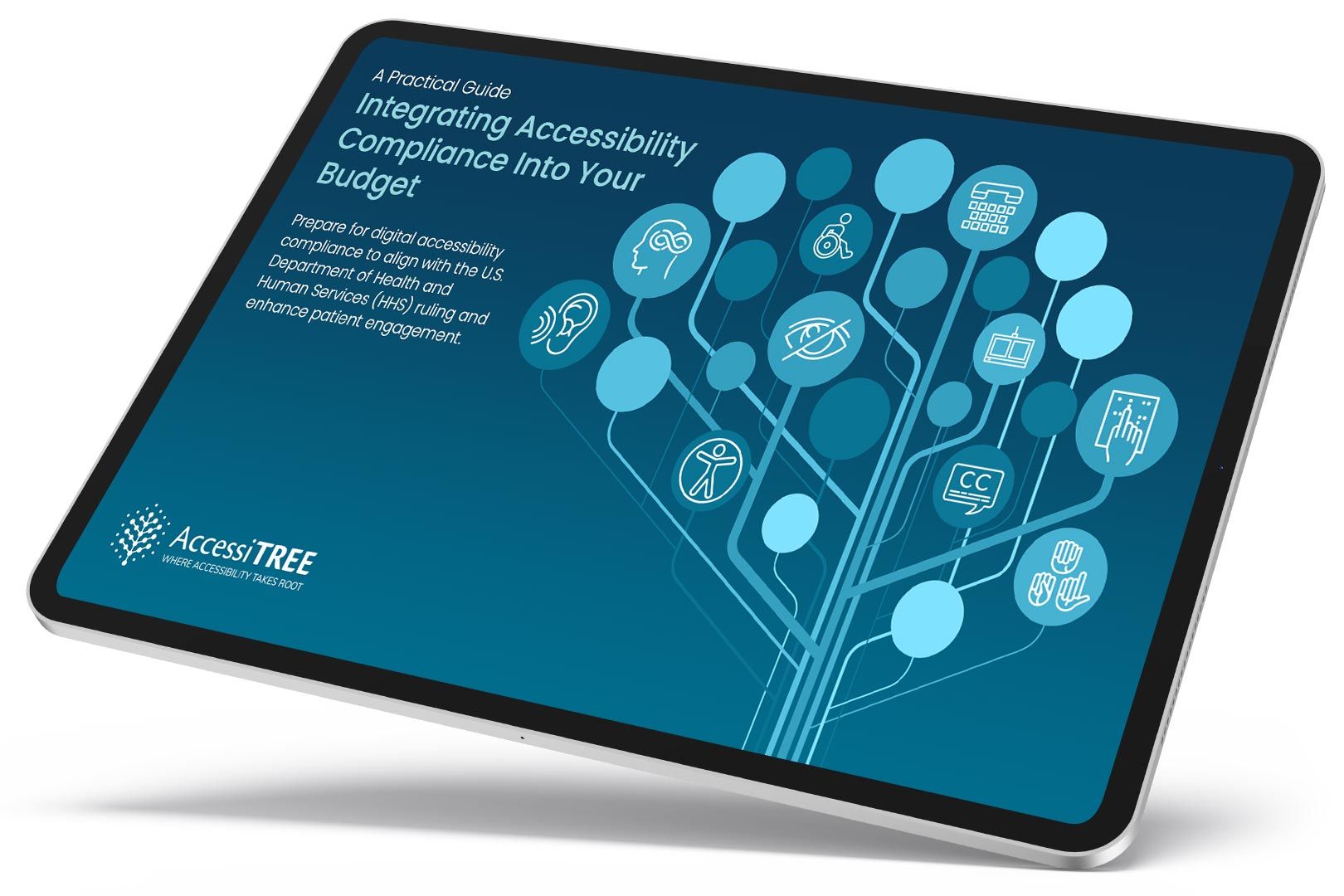
WCAG Compliance – Why Digital Accessibility Matters for Veterans’ Healthcare and Mental Well-Being
Digital accessibility is crucial in modern healthcare. As more medical and mental health services shift online, healthcare providers must ensure that their digital platforms are accessible to all patients, including veterans. Many veterans face unique challenges due to service-related disabilities. Therefore, WCAG compliance is essential for equitable healthcare access.
Why does this matter? Veterans rely on digital platforms for several reasons:
- Scheduling medical appointments – Many veterans face mobility challenges or transportation barriers. As a result, online scheduling is essential for accessing timely care.
- Accessing mental health resources – Veterans dealing with PTSD, depression, or anxiety require easy access to digital mental health tools and crisis support services. Additionally, having a user-friendly interface helps them find the right resources quickly.
- Completing online forms for VA benefits and disability services – Complex or inaccessible forms can delay essential healthcare and financial support. Consequently, accessibility improvements can streamline this process and reduce frustration.
- Finding and managing prescription medications – Veterans need accessible pharmacy platforms for refills, medication tracking, and updates on treatment options. Furthermore, clear navigation enhances usability.
- Connecting with veteran support communities – Digital spaces enable veterans to find peer support groups, advocacy networks, and online forums for shared experiences. This fosters a sense of belonging and encourages engagement.
- Learning about healthcare options and educational programs – Accessible healthcare websites help veterans explore available treatment plans, educational courses, and wellness initiatives. As a result, they can make informed decisions about their care and treatment options.
When websites and applications fail to meet WCAG compliance standards, veterans with disabilities may struggle to access critical care.
Understanding Digital Accessibility and WCAG Compliance
What is WCAG Compliance?
The Web Content Accessibility Guidelines (WCAG) provide a framework for making digital content accessible to individuals with disabilities. WCAG compliance ensures that healthcare websites and other online platforms are:
- Perceivable: Content must be accessible to individuals with vision or hearing impairments. In addition, alternative text and captions should be provided.
- Operable: Navigation should be possible without a mouse, allowing compatibility with assistive devices. As a result, users with limited mobility can still access important resources.
- Understandable: Clear instructions and simple language help those with cognitive disabilities. Moreover, structured layouts improve readability.
- Robust: Digital content should be compatible with screen readers and other assistive technologies. Therefore, accessibility features should be regularly tested.
For healthcare providers, implementing WCAG compliance improves patient engagement and ensures that veterans receive the care they deserve.
The Unique Digital Challenges Veterans Face in Healthcare
Veterans often encounter digital accessibility barriers due to service-related injuries or conditions. Without WCAG compliance, online healthcare services can become inaccessible, preventing veterans from receiving timely medical and mental health care.
1. Physical Disabilities and Mobility Challenges
Many veterans have mobility impairments, limb loss, or spinal cord injuries that make traditional device use difficult.
🔹 Barrier: Complex website navigation and forms requiring a mouse or precise control.
💚 Solution: Keyboard-friendly navigation, voice command compatibility, and simplified digital forms improve accessibility.
2. Cognitive and Neurological Conditions
Traumatic brain injuries (TBI), PTSD, and other cognitive conditions affect memory, focus, and information processing.
🔹 Barrier: Overloaded websites, complex instructions, and unclear form fields.
💚 Solution: Simple, structured layouts, clear instructions, and predictable navigation improve usability. Additionally, reducing unnecessary elements enhances user experience.
3. Sensory Impairments
Hearing loss and vision impairments are common among veterans, making some digital content inaccessible.
🔹 Barrier: Videos without captions, small text, and poor color contrast.
💚 Solution: Captioned videos, resizable text, and high-contrast design for improved readability. Also, using audio descriptions enhances accessibility for visually impaired users.
4. Mental Health Barriers
Anxiety, depression, and PTSD can make digital interactions overwhelming or frustrating.
🔹 Barrier: Confusing layouts and difficult-to-find mental health resources.
💚 Solution: Clear, easy-to-navigate platforms with dedicated mental health sections. Furthermore, a clutter-free design can reduce stress while browsing.
Why WCAG Compliance is Critical for Veterans’ Healthcare
Ensuring WCAG compliance in digital healthcare services benefits both veterans and healthcare providers in multiple ways:
1. Improving Website Accessibility for Veterans with Disabilities
Websites are essential for accessing test results, requesting prescriptions, and messaging providers. However, an inaccessible website can be frustrating for veterans with cognitive or physical disabilities. Therefore, optimizing website design improves usability and engagement.
2. Reducing Barriers in VA Benefits and Disability Claims
Many veterans apply for healthcare benefits online. Ensuring WCAG compliance simplifies the process. Consequently, it prevents frustration and reduces the risk of missed medical care due to inaccessible forms. Moreover, clear instructions make form completion easier.
3. Increasing Engagement in Mental Health Programs
Accessible mental health platforms ensure that veterans can easily access therapy resources, crisis support, and PTSD treatment programs. WCAG compliance creates an inclusive, stress-free experience that encourages veterans to seek help.
Common struggles veterans face in accessing mental health programs:
- Difficulty navigating complex online mental health resources.
- Overwhelming or cluttered website layouts triggering anxiety.
- Lack of clear instructions for booking therapy sessions.
- Inaccessible crisis support services that do not accommodate disabilities.
- Inconsistent or missing closed captions in mental health video resources.
The Future of Digital Accessibility in Healthcare
Legal and Ethical Responsibilities
Under the Americans with Disabilities Act (ADA) and Section 508, healthcare organizations must ensure their digital platforms meet accessibility standards. WCAG compliance is a proactive step toward legal adherence and equitable patient care.
How Healthcare Providers Can Lead the Change
By implementing WCAG compliance, healthcare professionals create a veteran-friendly digital experience that enhances medical and mental health services. Furthermore, investing in accessibility now leads to better patient engagement and improved health outcomes.
How AccessiTREE Supports Healthcare Providers and Veterans
At AccessiTREE, we believe in breaking down digital barriers in healthcare. Our mission is to support healthcare providers and mental health professionals in making their digital platforms WCAG compliant, ensuring veterans have equitable access to healthcare.
By partnering with AccessiTREE, healthcare providers can improve patient experiences, increase engagement, and ensure compliance with accessibility laws.
Veterans deserve equal access to healthcare and mental health services. WCAG compliance ensures that digital platforms are accessible, user-friendly, and legally compliant.
Contact us today and join the movement to make healthcare digital platforms accessible for all.

